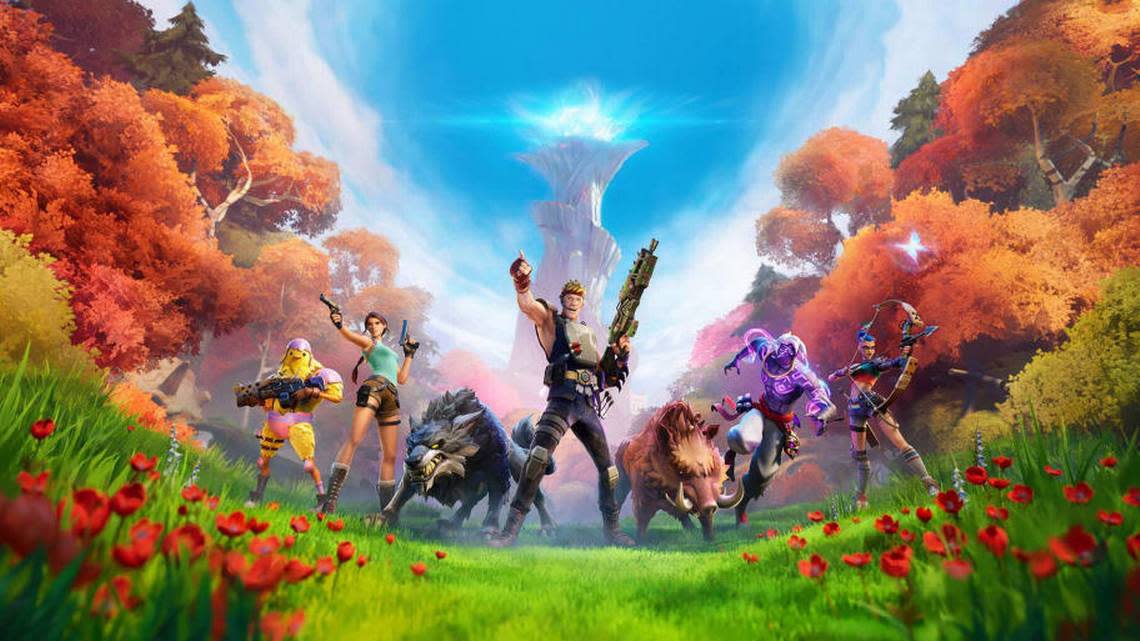Apple wants to take legal battle with Cary creator of Fortnite to Supreme Court
The long-running antitrust fight between the world’s richest tech company and North Carolina’s most prominent video game maker could be headed to the nation’s highest court.
In a filing Monday, Apple said it will ask the U.S. Supreme Court to consider overturning an appellate court decision in its case against Epic Games, the Cary-based creator of Unreal Engine and the widely popular Fortnite. The matter concerns Apple’s “anti-steering” policy, which prohibits app developers from mentioning or linking to alternative payment options outside the App Store.
In April, U.S. 9th Circuit Court of Appeals upheld a Northern California district court decision that found Apple’s anti-steering rule violated California state law. Apple now contends the San Francisco-based appellate court overreached by mandating a nationwide injunction on a practice found to be unlawful in one state.
“Apple intends to seek review in the Supreme Court because the panel’s decision raises far-reaching and important questions,” Apple wrote, including “the limits of a federal court’s authority to issue an injunction.”
This week, the company asked the 9th Circuit to stay its decision pending further resolution in the Supreme Court.
On Monday, Epic Games CEO Tim Sweeney voiced his frustration with the Cupertino tech giant, tweeting Apple’s anti-steering policy “censors developers who want to tell consumers about better deals on digital goods out-of-app.”
Sweeney, who is the second-wealthiest person in North Carolina, has been engaged in a legal fight with Apple since August 2020, when Epic introduced an alternative way for iPhone and Android users to buy “v-bucks,” the in-game currency of its popular game Fortnite.
Apple is seeking Supreme Court appeal of the District Court and 9th Circuit court verdict that found its anti-steering policies illegal. Their policy censors developers who want to tell consumers about better deals on digital goods out-of-app.https://t.co/oRZBsXP5P1
— Tim Sweeney (@TimSweeneyEpic) July 4, 2023
Previously, iPhone and Android users had to purchase v-bucks through Apple’s and Google’s payment systems, both of which took 30% of the revenue generated by major app developers.
Apple doesn’t let iPhone users download apps outside the App Store or make in-app purchases outside Apple’s payment system. The company contends this closed “walled garden” approach is necessary to ensure the security of its iOS operating system.
Sweeney rejected this argument, arguing that the fees Apple and Google levied were excessive. Epic circumvented the fees by beginning to sell v-bucks directly to iPhone and Android players at a discount.
Epic sues Apple. Apple sues Epic.
Apple and Google were quick to respond. The same day Epic Games offered v-bucks directly, both tech companies booted Fortnite from their respective app stores, arguing Epic had violated their developer agreement policies.
Epic immediately sued Apple and Google, accusing their app stores of operating as illegal monopolies. Both Apple and Google filed countersuits against Epic.
“Epic versus Apple is what I’ve previously called the Super Bowl of antitrust,” Florian Ederer, a professor of economics at Boston University, said in October.
In the courtroom, Apple has so far gotten the better of Epic.

In September 2021, U.S. District Court Judge Yvonne Gonzalez Rogers rejected Epic’s core claim that Apple operates an illegal monopoly when it prohibits iPhone users from downloading apps outside the App Store or from making in-app purchases outside Apple’s payment system.
“While the Court finds that Apple enjoys considerable market share of over 55% and extraordinarily high profit margins, these factors alone do not show antitrust conduct,” she said. “Success is not illegal.”
Fortnite, which attracts millions of players daily, is still not available on Apple’s App Store.
Will the Supreme Court hear Epic Game vs. Apple?
Epic Games hit the same roadblock in the appellate court.
But even though the 9th Circuit upheld nine of 10 claims in favor of Apple, Sweeney celebrated the anti-steering ruling on Twitter, writing that removing the policy “frees iOS developers to send consumers to the web to do business with them directly there.”
“We’re working on next steps,” he added.
Sweeney, who has more than 231,000 Twitter followers, did not divulge what those next steps would be. Like Apple, Epic Games has the ability to appeal the appellate ruling to the Supreme Court.
An Epic Games spokesperson told The News & Observer this week the company has no comment on the case beyond what its CEO has posted online.
According to Reuters, the 9th Circuit on Friday rejected petitions filed by both Apple and Epic which asked the court to reconsider its April judgment.
The next, and last, way for the case to progress is through the Supreme Court.
The highest court is under no obligation to take up the case. Of the more than 7,000 cases that go through appellate courts in a given year, the Supreme Court only typically hears 100 to 150 of them.
Sign up for the weekly Open Source newsletter here.
